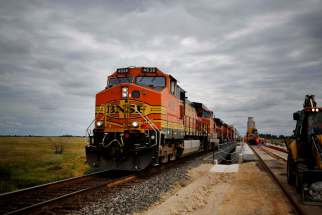Canadian rail rules derailed by American red tape
Read this article for free:
or
Already have an account? Log in here »
To continue reading, please subscribe:
Monthly Digital Subscription
$0 for the first 4 weeks*
- Enjoy unlimited reading on winnipegfreepress.com
- Read the E-Edition, our digital replica newspaper
- Access News Break, our award-winning app
- Play interactive puzzles
*No charge for 4 weeks then price increases to the regular rate of $19.00 plus GST every four weeks. Offer available to new and qualified returning subscribers only. Cancel any time.
Monthly Digital Subscription
$4.75/week*
- Enjoy unlimited reading on winnipegfreepress.com
- Read the E-Edition, our digital replica newspaper
- Access News Break, our award-winning app
- Play interactive puzzles
*Billed as $19 plus GST every four weeks. Cancel any time.
To continue reading, please subscribe:
Add Free Press access to your Brandon Sun subscription for only an additional
$1 for the first 4 weeks*
*Your next subscription payment will increase by $1.00 and you will be charged $16.99 plus GST for four weeks. After four weeks, your payment will increase to $23.99 plus GST every four weeks.
Read unlimited articles for free today:
or
Already have an account? Log in here »
Hey there, time traveller!
This article was published 08/02/2019 (2501 days ago), so information in it may no longer be current.
OTTAWA — Transport Canada had no clue what items American freight trains were rolling into Winnipeg, Vancouver and Montreal for months last year, the Free Press has learned.
An October 2018 memo marked “secret” reveals United States carriers BNSF Railway Co. and CSX Corp. were not complying with data-reporting requirements that came into place four months prior, which required them to tell Ottawa what was being transported on their trains.
The companies say they’ve since rectified the issue with Ottawa, without providing specifics. BNSF operates more than 300 kilometres of track in Manitoba and British Columbia, including a line that runs through Winnipeg’s River Heights neighbourhood toward the Arlington rail yard.
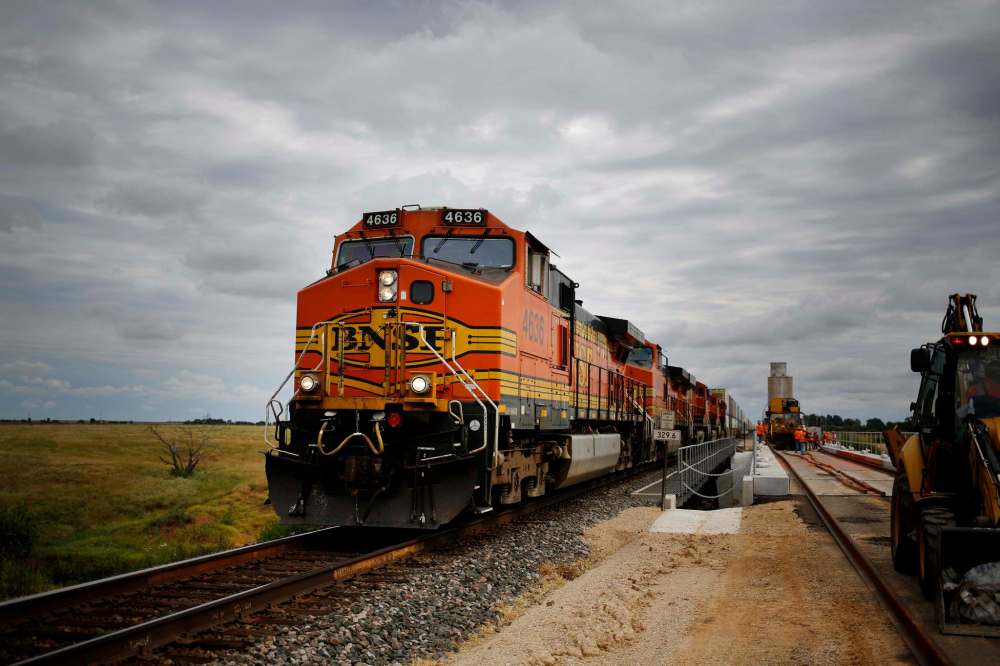
The news comes among an unprecedented uptick in crude oil being shipped on trains, including through Winnipeg. Last month, the Free Press revealed lax safety protocols on Manitoba rail lines, CN staff in Winnipeg shutting off a red-light alarm for three months, and exhausted rail workers housed in overcapacity bunkhouses.
The death of three rail workers Monday in B.C. raised more questions about rail safety in Canada, as did the collision of two oncoming trains last month near Portage la Prairie.
The data-reporting rules came in under Bill C-49, the Transporation Modernization Act. They require large carriers to disclose each month what goods they’re carrying, on behalf of whom and at what cost — including when trains cross the U.S. border.
Large carriers had to submit their data by June 30, 2018, going back to August 2016. Ottawa can fine those don’t comply.
The memo, issued to Transport Minister Marc Garneau, notes the requirement is meant to “increase transparency of Canada’s freight-rail network and the movement of goods, including dangerous goods.”
It was also supposed to help bureaucrats to craft policy and monitor the introducing of so-called “long-haul interswitching” (where a company carries freight along a shorter route on behalf of another firm, and gets reimbursed at the end of the year).
Yet a section of U.S. federal transportation law forbids railroads from sharing commercially sensitive information on what their customers are moving by rail without their consent, at the risk of fines or imprisonment.
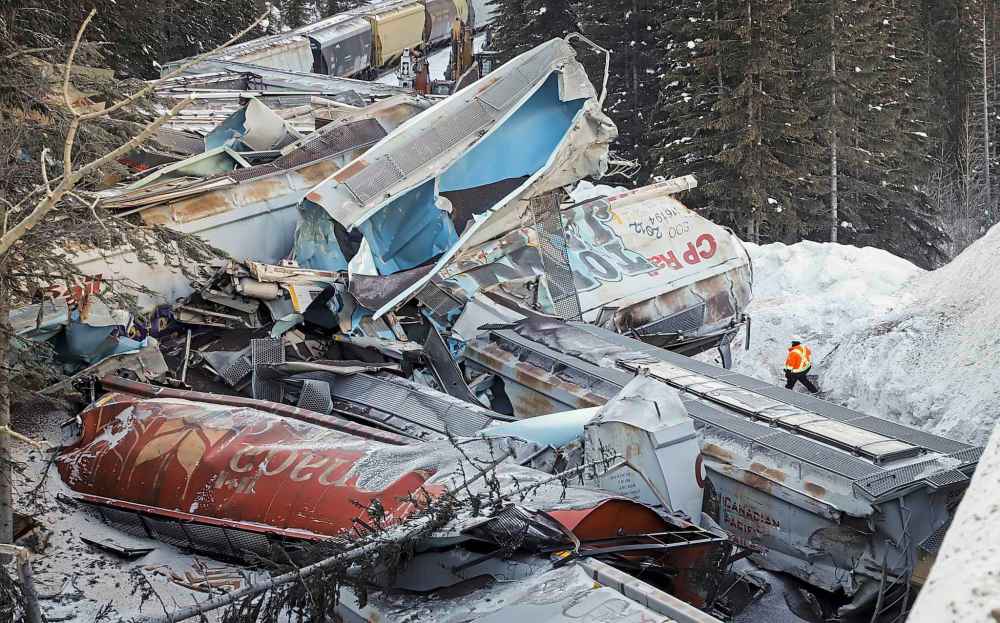
Canadian National Railway and Canadian Pacific Railway complied with the order. The memo noted Norfolk Southern Railway and Union Pacific Railroad reported having “little to no revenue traffic in Canada and therefore (were) not filing reports,” with most of their freight ending up on CN and CP lines and thus reported.
However, “BNSF and CSX are withholding a range of data fields, primarily due to their concerns about violating U.S. legal obligations and to a lesser extent, due to limitations in their reporting systems,” according to the memo.
Senior officials at Transport Canada wrote to Garneau they’d asked BNSF and CSX to comply and “suggested they approach shippers to gain consent to share the data with the Canadian government,” armed with “information on how the government of Canada protects confidential data.”
The memo tells Garneau he could pursue prosecution but notes “the railways have been co-operating and complying to the extent they consider allows them to also comply with U.S. law.” The bureaucracy’s suggested course of action is censored under a solicitor-client privilege exemption in the Access to Information Act.
It’s unclear what has happened since the memo, issued little more than three months ago.
“We cannot comment on the compliance of an individual regulatee,” Transport Canada spokeswoman Sau Sau Liu wrote Friday in an email, despite her department’s briefing note having detailed the railways’ compliance.
The railways were similarly evasive, and wouldn’t say whether they were fined.
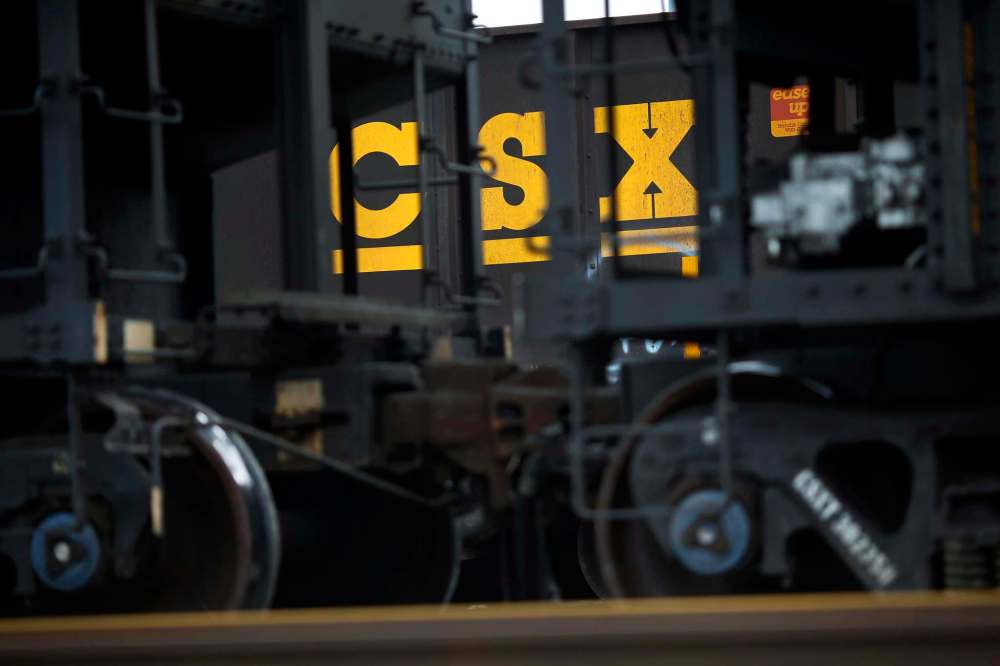
“BNSF has submitted the required reports on a monthly basis since the reporting obligation first came into effect,” claimed BNSF spokeswoman Amy Casas; that contravenes what the Transport Canada memo states.
“We worked collaboratively with Transport Canada through the end of 2018 to ensure we are in compliance.”
CSX, which operates a line into a Montreal suburb as well as one to Southern Ontario, did not say what happened and would not provide an interview.
“CSX has been working closely with Transport Canada in complying with the reporting requirements of C-49, while giving appropriate consideration to certain confidential material,” reads an email with no name attributed.
The reporting requirement came in through Bill C-49, which reformed rail and aviation rules when it became law on May 23, 2018. The legislation was among the most subject to lobbying in recent memory, and its 12 months of debate culminated in the Senate sending the bill back to the House twice with suggested changes.
Transport Canada did not say how the legislation’s year of consultations and study failed to make note of the American directive, which has been on the books since at least February 2010.
A June 2018 letter from the U.S. Surface Transportation Board reveals two congressmen asked the agency to look into the matter, and the agency was in touch with Canadian officials, as well as the American embassy in Ottawa.
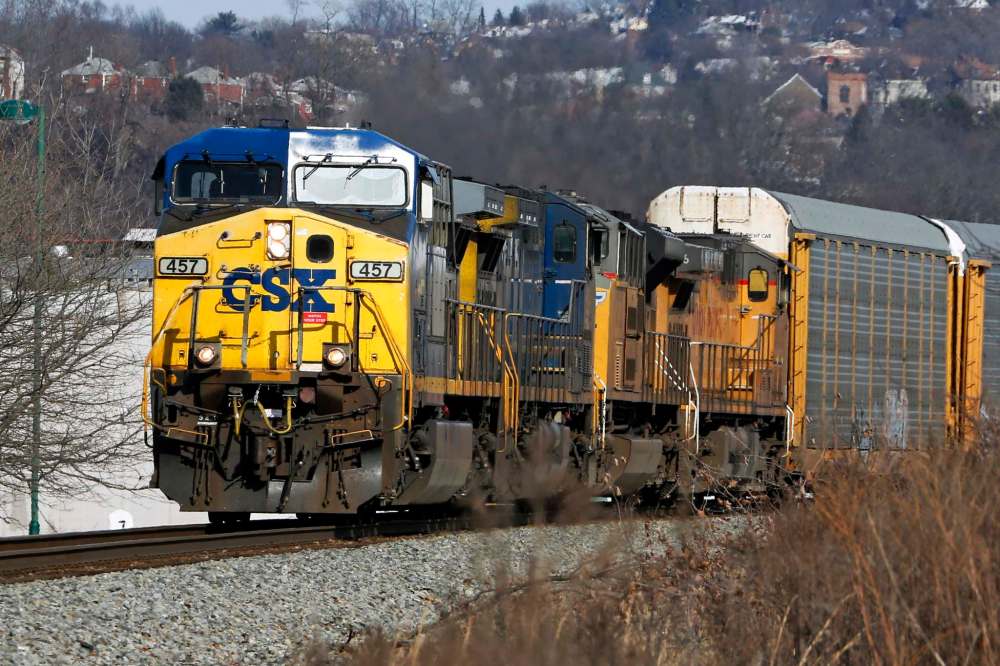
The embassy declined to comment Friday.
Rail-safety advocates have long decried the lack of data railways and Transport Canada shares about what’s actually moving on trains across Canada.
An independent review of the Rail Safety Act presented to Garneau last spring noted already-high public skepticism of the railway could derail projects that aim to increase rail infrastructure, similar to how pipelines opposition has helped stall large builds.
dylan.robertson@freepress.mb.ca
Transport Canada documents on American rail-company waybills
History
Updated on Saturday, February 9, 2019 2:30 PM CST: Typo fixed.


